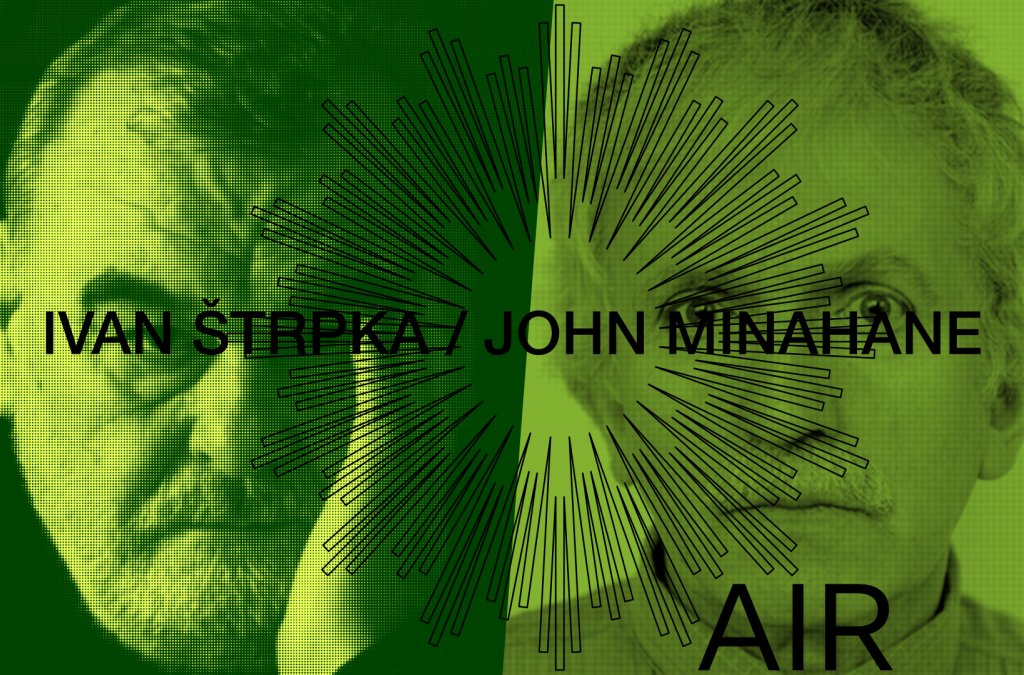
Translator John Minahane is another TROJICA AIR resident in Banská Štiavnica. He is translating Ivan Štrpka's poetry collection Fragment (rytierskeho) lesa / Fragment of a (Knight’s) Forest.
John Minahane was born in Ireland in 1950. He has been living and working in Slovakia since 1996 and since about 2004 he has been translating Slovak literature to English. He translated the works of many poets and fiction writers, e.g. Margita Figuli (Tri gaštanové kone), Ladislav Novomeský, Milan Rúfus, Ján Buzássy, Mila Haugová, Ivan Štrpka. The Bloody Sonnets, his translation of P. O. Hviezdoslav's Krvavé sonety was published in LIC in 2018.
Every residency is accompanied by an event where the translator and the author of the translated book are introduced together in Banská Štiavnica. On July 10th, John Minahane and Ivan Štrkpa met in Eleuzína (Horná ružová street 1, Banská Štiavnica). Here is the event on Facebook.
Here is a brief interview with John Minahane about his work and the residency.
Why did you pick Ivan Štrpka's book? How can it attract English speaking readers?
How? Perhaps we could say with wonder. Wonder is everywhere in Ivan Štrpka's verses. In his texts, ordinary things cannot just be ordinary. They appear in different perspectives in which they are strange:
The wind is almost visible.
Trees are blurred as the future.
‒ anyone can feel it in the moment, but for Štrpka the feeling is not momentary. On the contrary, this is his attitude, always. What he wants to express goes beyond conventional ways of thinking.
Meister Eckhart had once excelled in such poetry writing. Štrpka quotes his beautiful verse
Genk ane wek
„go without a road“ ‒ meaning: go where there's no map therefore your direction cannot be known beforehand.
It's a difficult thing to do! The contemporary poet admits it:
Outside? Or in? Am I awake? Or do I sleep?
Write to me, wind. In what footprint
am I now stuck fast?
However, the wind and the walking end up creating a sort of narrow road. A fragile orientation is gained by both the poet and the reader. I find this interesting, albeit challenging. I would like to present his poetry to those who are open to receive it. I have no doubts there are such English-speaking readers.
What is the biggest challenge in translating this particular book?
Challenges are everywhere. Let's look at the first sentence from the first poem of the collection:
Zadržaný dych sa vytrvalo plazí celé roky. (The held breath persistently crawls entire years.)
Vytrvalo? A good Slovak-English dictionary offers up to 15 possible equivalents for the word vytrvalý. Which one is the best? I have chosen persistently... There are many similar, unavoidable choices, among them reccuring words that appear regularly and that function as pointers in Štrpka's poetry.
The biggest challenge for me, however, is the poetic tone. It has to be authentic and also convincing in the translated text.
Does the residency suit your work? Are you able to better concentrate on the translation?
Absolutely! My study is quiet and spacious, it has massive walls and a gently arched ceiling with a simple, quite tasteful relief. When I look out of the window, I can see the tower of the Old Castle right above me. Aside from that, Banská Štiavnica is a great town where everyone looks good. Nobody needs a fitness center, walking up and down the main street is enough. And there are mountains around. I will try an alternative setting and see whether I would be able to work on Glanzenberg as well.
What else are you working on these days? Any other translations, your own texts,...?
I have some shorter fictional pieces to translate and I'm working on my own writing. I also read. The antiquarian bookstore on Námestie Svätej Trojice has a decent selection of Roman classics in Slovak translation. I have found Sallustius whom I'd read in Ireland forty years ago. „The path returns to itself," as Štrpka writes. I have finished Catalin's Conspiracy and now The War with Jughurta awaits.